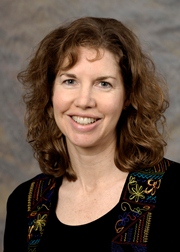Tools can help aged keep independence

Sometimes a simple tool to assist with putting on socks or opening jars can keep an elderly person or someone with disabilities living independently in their own home for longer.
WSU researchers are finding many people don’t know about helpful devices readily available on the market—such as medication reminders that talk, knives that rock to ease food cutting, large-grip utensils, electric door openers, money identifiers, and automatic electricity shutoffs.
That’s why students in the Department of Psychology and the College of Nursing recently made a series of informational videos highlighting common tools to assist people with everything from hearing, vision, and remembering important tasks—like taking medications—to daily duties such as cooking, dressing, and using the bathroom.
For many elderly, the discovery means freedom.
Find out more and take the survey to view several assistive technology options



